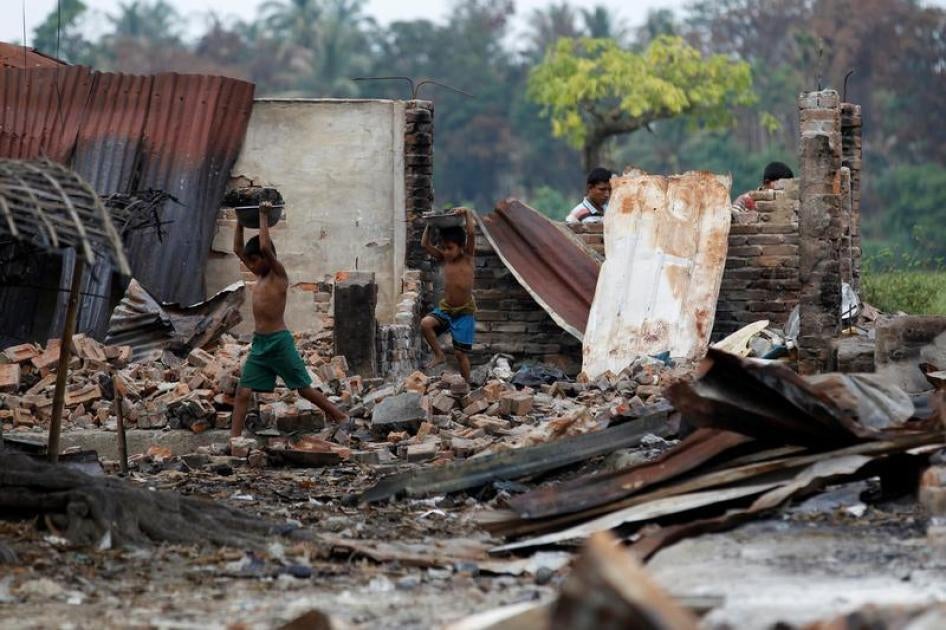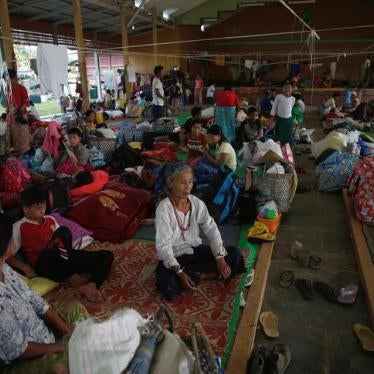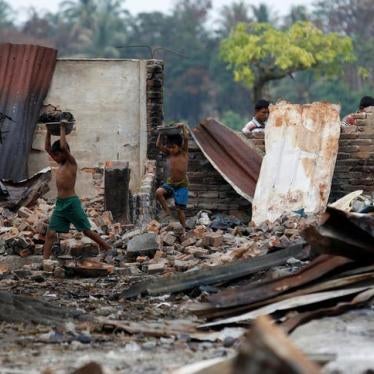The Burmese army’s attacks on Burma’s beleaguered ethnic Rohingya population may have stopped in northern Rakhine State, but hundreds of thousands are still going hungry there, according to the World Food Programme (WFP).
According to the survey – the first one the WFP conducted on the ground in Rakhine State since violence erupted in October 2016 – among those suffering are more than 80,000 children. These children will need treatment for acute malnutrition, also known as “wasting,” over the next 12 months, the WFP said. Acute malnutrition develops as a result of recent rapid weight loss or failure to gain weight. If left unaddressed, thousands could be at risk of advancing to more dangerous stages of malnutrition, which compromise the body’s vital processes, and even starvation.
Underscoring the manmade nature of this crisis, the WFP said that “restriction of movement was one of the main constraints for the population for accessing food.”
The areas surveyed are almost entirely inhabited by Rohingya Muslims, whom the government classifies as non-citizens. When security forces began “clearance operations” last year they killed and raped numerous Rohingya and torched at least 1,500 buildings. Tens of thousands were displaced.
The United Nations report of the situation found it “very likely” that crimes against humanity occurred.
The Burmese government continues to deny the UN reports of abuses.
During the “clearance operations,” the government blocked the delivery of food and other assistance to the area, as well as denying access to humanitarian agencies, nongovernmental organizations, journalists, and independent human rights monitors. The government says it ended the campaign in February 2017, but some restrictions remain.
In March, the UN Human Rights Council adopted a resolution establishing a fact-finding mission to investigate recent violence by Burma’s security forces, including in Rakhine State. The government recently stated they will deny entry to Burma for the commission’s members.
The army’s abusive operations in Rakhine State have compounded the disastrous effects of the government’s long-standing discriminatory policies against the Rohingya. The WFP survey highlights the continued cruelty and depravity of the government’s actions, demonstrating how ceaseless discrimination can lead to the systematic denial of a most basic right – the right to food.
The government should act urgently to address the devastation it has wrought. And it should allow humanitarian access to all those at risk in Burma, ensuring that the rights and welfare of all Burma’s people – including the Rohingya – are upheld.









